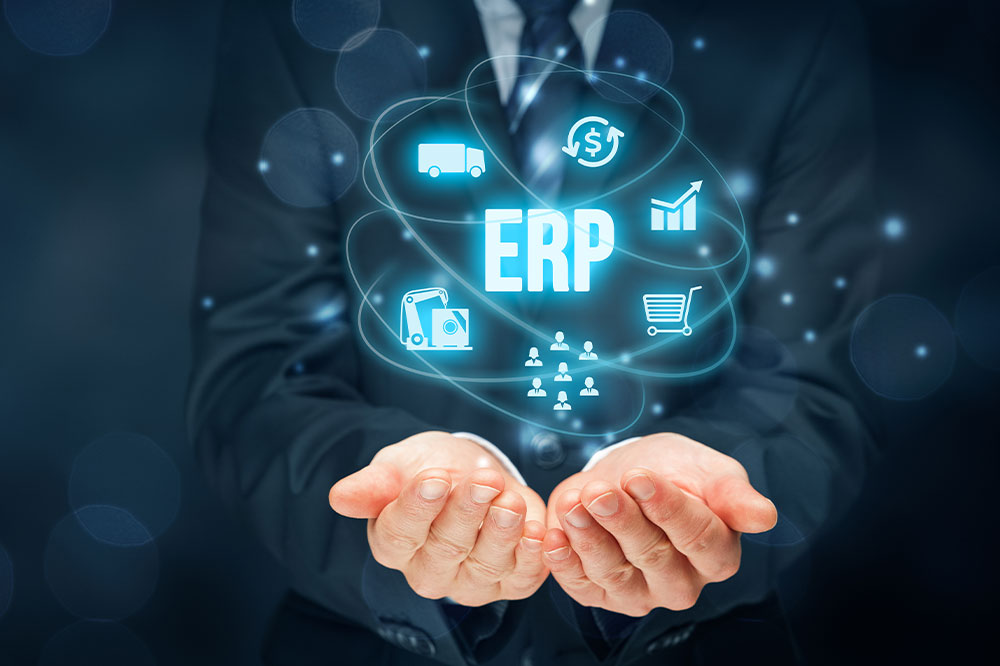Comprehensive Guide to the Top 4 Enterprise Resource Planning (ERP) Solutions for Business Success
Discover the top four ERP solutions—Oracle NetSuite, Microsoft Dynamics 365, SAP Business One, and SysPro ERP—that can revolutionize your business operations. This comprehensive guide covers features, industry fit, customization, and benefits to help you choose the best enterprise resource planning system. Learn how these solutions support growth, streamline processes, and provide valuable insights for strategic decision-making, ensuring your organization stays competitive in today’s dynamic market landscape.

Comprehensive Guide to the Top 4 Enterprise Resource Planning (ERP) Solutions for Business Success
In today's highly competitive and rapidly evolving business landscape, streamlining operations is more critical than ever. Enterprise Resource Planning (ERP) software has become an indispensable tool for organizations looking to integrate core processes, improve efficiency, and gain real-time insights into their operations. ERP systems unify various business functions such as finance, supply chain, human resources, customer relationship management (CRM), and more into a single, cohesive platform. This integration facilitates better decision-making, enhances productivity, reduces redundancies, and supports scalability for future growth.
Choosing the right ERP solution can be transformative for a business, but the vast array of options available can make this decision challenging. It is vital to understand the features, industry suitability, customization capabilities, and scalability of each system to find the best fit for your organization’s unique needs. Below, we explore four leading ERP providers—Oracle NetSuite, Microsoft Dynamics 365, SAP Business One, and SysPro ERP—highlighting their strengths, typical use cases, and considerations to help you make an informed decision.
Oracle NetSuite
Oracle NetSuite stands out as a leading cloud-based ERP solution, renowned globally for its comprehensive features and high flexibility. It caters to mid-sized and large organizations across diverse industries, including retail, manufacturing, wholesale distribution, and services. One of the platform’s key advantages is its user-friendly interface combined with powerful customization options, allowing businesses to tailor workflows and functionalities according to their specific needs.
NetSuite’s cloud architecture provides real-time access to data from anywhere, supporting remote work and multi-location operations. Its scalability means organizations can start with core modules and expand as they grow, making it a future-proof investment. Furthermore, NetSuite integrates seamlessly with other Oracle products and third-party applications, enhancing its versatility.
For businesses interested in deploying Oracle NetSuite, a free demo is available to explore its features firsthand. Pricing details are typically provided upon request, given the extensive customization options and deployment scales available, ensuring flexibility in budgeting.
Microsoft Dynamics 365
Microsoft Dynamics 365 offers a comprehensive ERP solution that is tightly integrated with what many organizations already use—the Microsoft Office 365 suite. This seamless integration facilitates user adoption and simplifies daily workflows, making it an attractive choice for companies looking to unify their business processes within familiar tools.
Designed primarily as a cloud-based platform, Dynamics 365 provides advanced features for finance, operations, sales, and customer service management. It boasts an intuitive interface and robust analytics, enabling real-time insights and smarter decision-making. The platform’s modular nature allows organizations to select only the applications they need, customizing their ERP environment effectively.
At present, Microsoft Dynamics 365 is highly accessible to North American businesses, with expansion plans for other regions. Although it offers substantial benefits for larger enterprises, small businesses may find some features more suited to bigger operations, necessitating careful evaluation to ensure alignment with specific organizational sizes and needs.
SAP Business One
SAP Business One is an ERP solution tailored for small to midsize enterprises seeking simplicity in managing complex analytics and data-driven processes. Known for its straightforward user interface, SAP Business One simplifies access to vital information, making it easier for managers and staff to utilize ERP functionalities without extensive training.
One of its core strengths is efficient data management and reporting capabilities, supporting multi-currency and multi-location operations, ideal for growing companies with international ambitions. Customization is possible but typically requires technical expertise or consulting services, which can enhance system performance and tailor functionalities precisely to business requirements.
Organizations considering SAP Business One should evaluate their need for customization and integration to maximize benefits. Its adaptable architecture makes it a solid choice for companies that need an easy-to-use but powerful ERP system that can grow alongside their business.
SysPro ERP
Tailored primarily for manufacturing, distribution, and supply chain management, SysPro ERP is designed to streamline financial, inventory, and operational processes. Its focus on supply chain management makes it suitable for small, mid-sized, and large enterprise businesses looking to enhance control over production, warehousing, and logistics.
SysPro excels in areas such as audit control, access management, and operational monitoring, supporting compliance and security requirements. Its robust features provide detailed insights into inventory levels, financial metrics, and service performance, facilitating data-driven decision-making.
Since pricing details are not publicly listed, interested businesses need to contact the sales team directly for tailored quotes. This approach allows for flexible deployment options based on the scale of operation and specific business needs. SysPro's industry-focused functionalities make it especially valuable for companies with complex supply chain or manufacturing processes.
Investing in an ERP system is a significant decision that can impact the overall efficiency, scalability, and competitiveness of your organization. It’s vital to assess each solution’s capabilities, integration options, and industry fit before making your choice. The right ERP can streamline your operations, reduce costs, improve customer satisfaction, and provide the data insights necessary for strategic growth. Take the time to evaluate the features, request demos, and consult with vendors to find the best match for your company’s unique requirements. With the proper implementation and support, the right ERP system can become a cornerstone of your business success for years to come.





